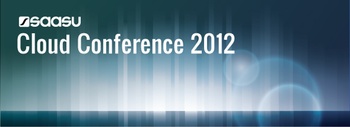 Here’s the complete audio recording of last weekend’s panel discussion iSpy at the Sydney Writer’s Festival with Tommy Tudehope, me and moderator Marc Fennell.
Here’s the complete audio recording of last weekend’s panel discussion iSpy at the Sydney Writer’s Festival with Tommy Tudehope, me and moderator Marc Fennell.
Even before Google controversially demolished the privacy walls between its various products, we were already living in the total surveillance society. With every keystroke we are voluntarily telling companies, governments and heaven knows who else an awful lot about ourselves. Should we be worried about the uses to which this information could be put?
The panel was originally inspired by my Sydney Morning Herald op-ed You are what you surf, buy or tweet, and I thought we’d also talk about some of the issues I raised in my more recent ZDNet Australia story The Facebook experiment.
But we covered a lot more, including research by Sophos that showed around 50% of people would automatically befriend anyone on Facebook, the progress of the Cybercrime Legislation Amendment Bill and the Council of Europe Convention on Cybercrime, the fact that The Greens’ Senator Scott Ludlam seems to be the only Australian politician paying attention to this stuff, using TOR to help make your web browsing anonymous, the surveillance policy split between the NSA and FBI, anonymous currencies like Bitcoin and Canada’s MintChip, Electronic Frontiers Australia, the Pirate Party Australia, Georgie Guy’s blog, and data mining company Acxiom — which in the recording you’ll hear me misspell as “Axxiom”.
Podcast: Play in new window | Download (Duration: 58:16 — 39.4MB)
The recording was made using my Zoom H4n sitting mid-way between me and Mr Tudehope, so Mr Fennell is off in the distance somewhat. But at least we have a recording.
If there are any issues you’d like to follow up, well, please post a comment.


 In February the Federal Court
In February the Federal Court